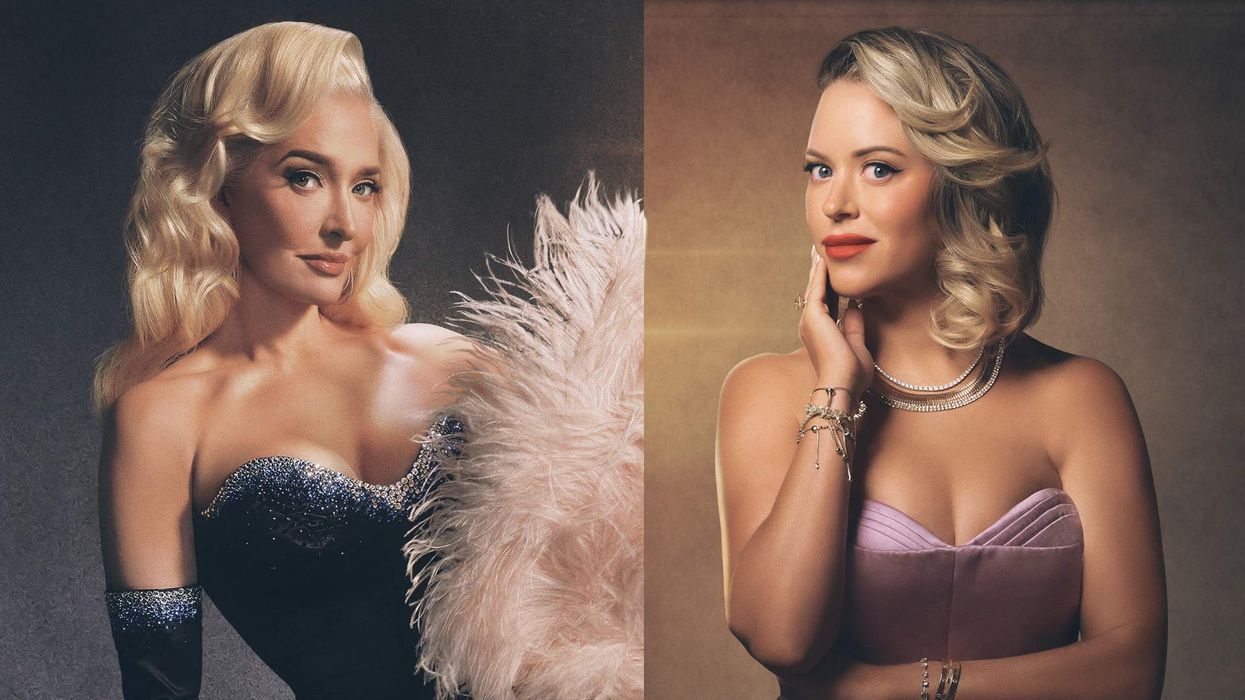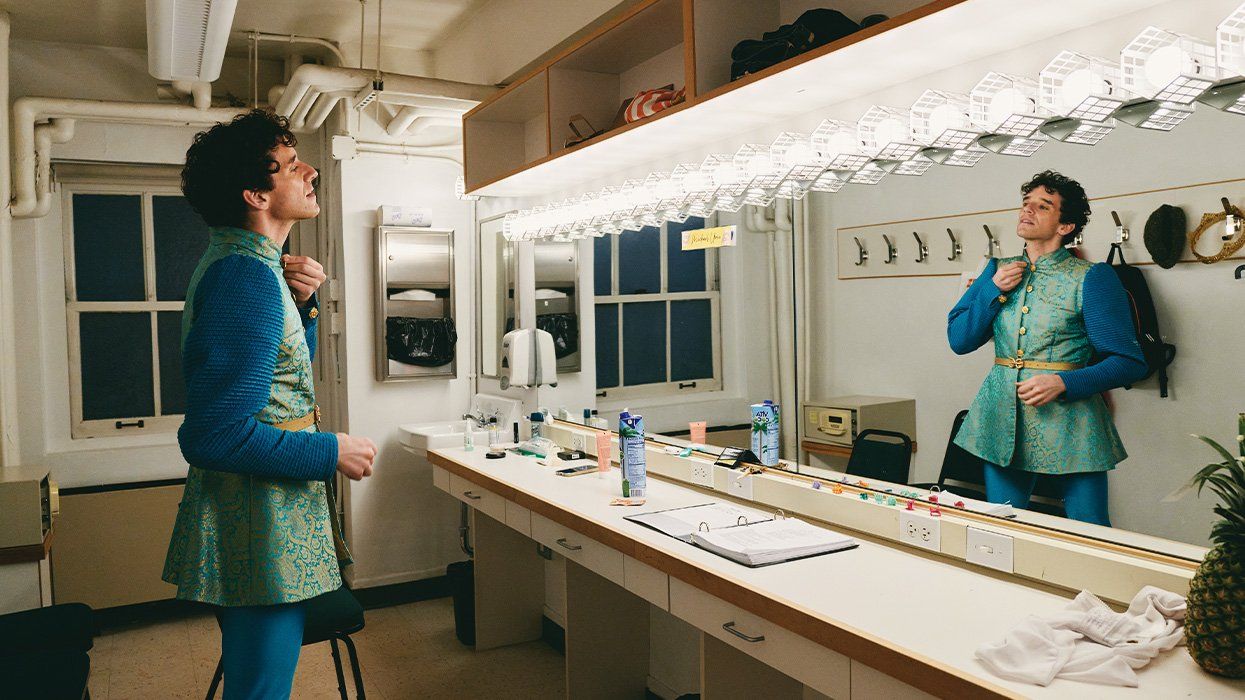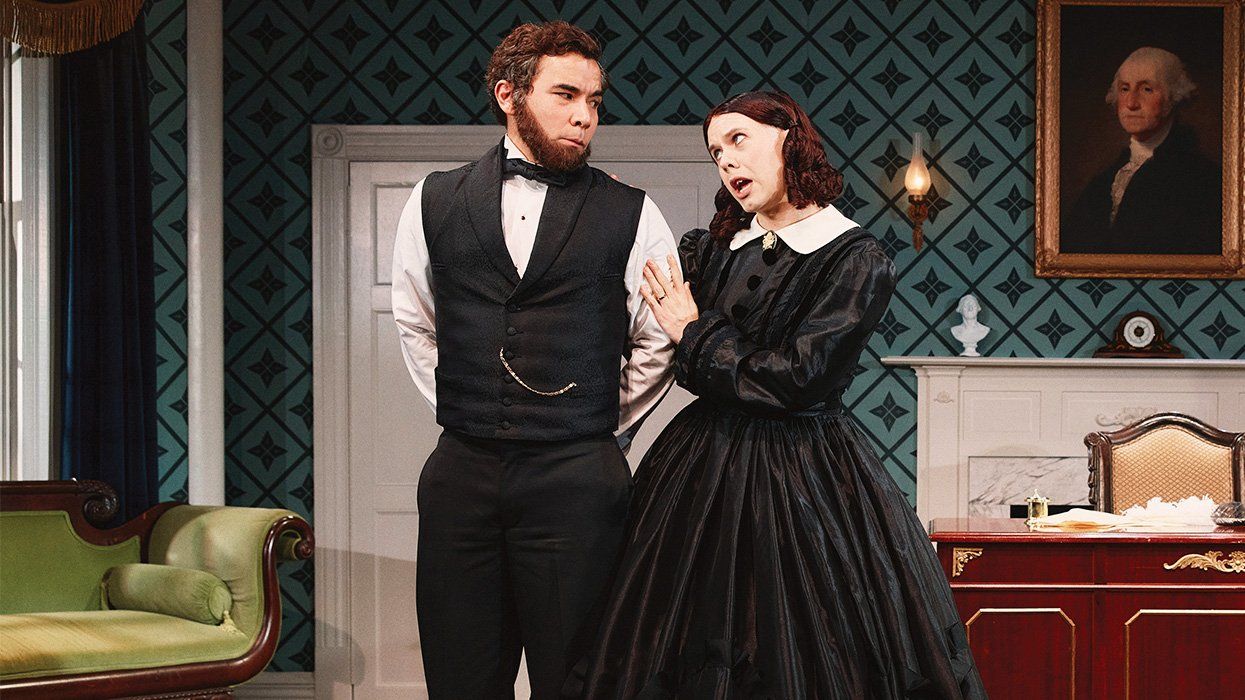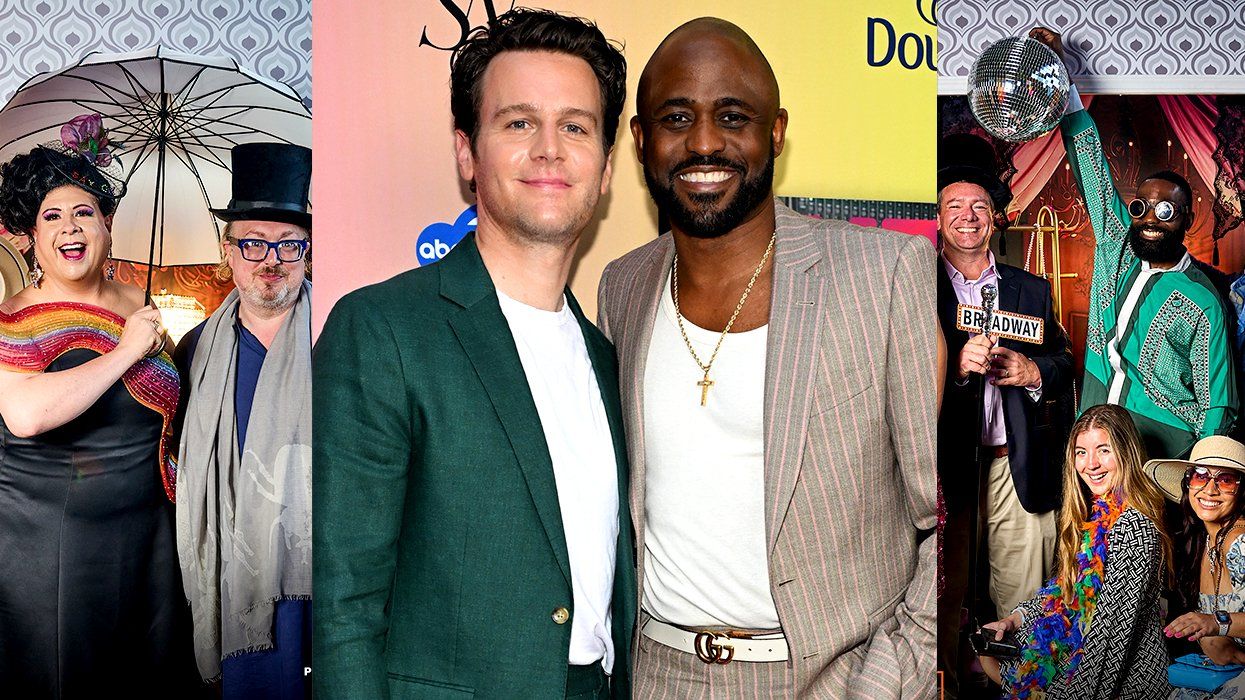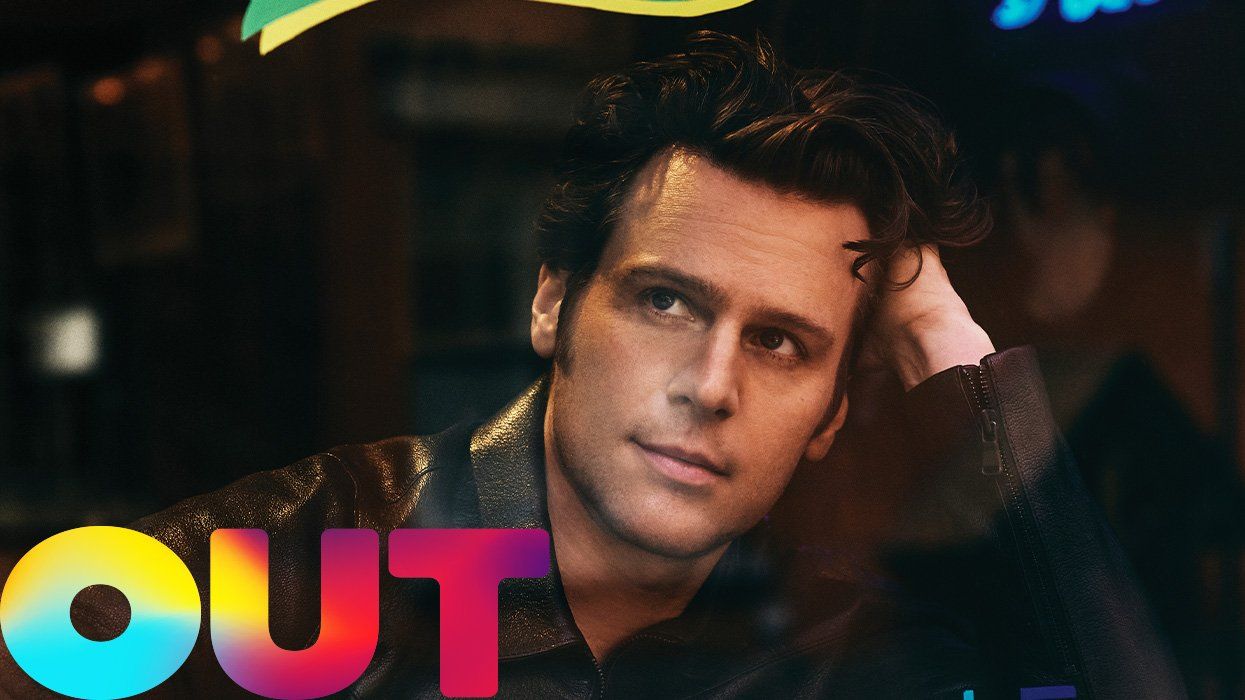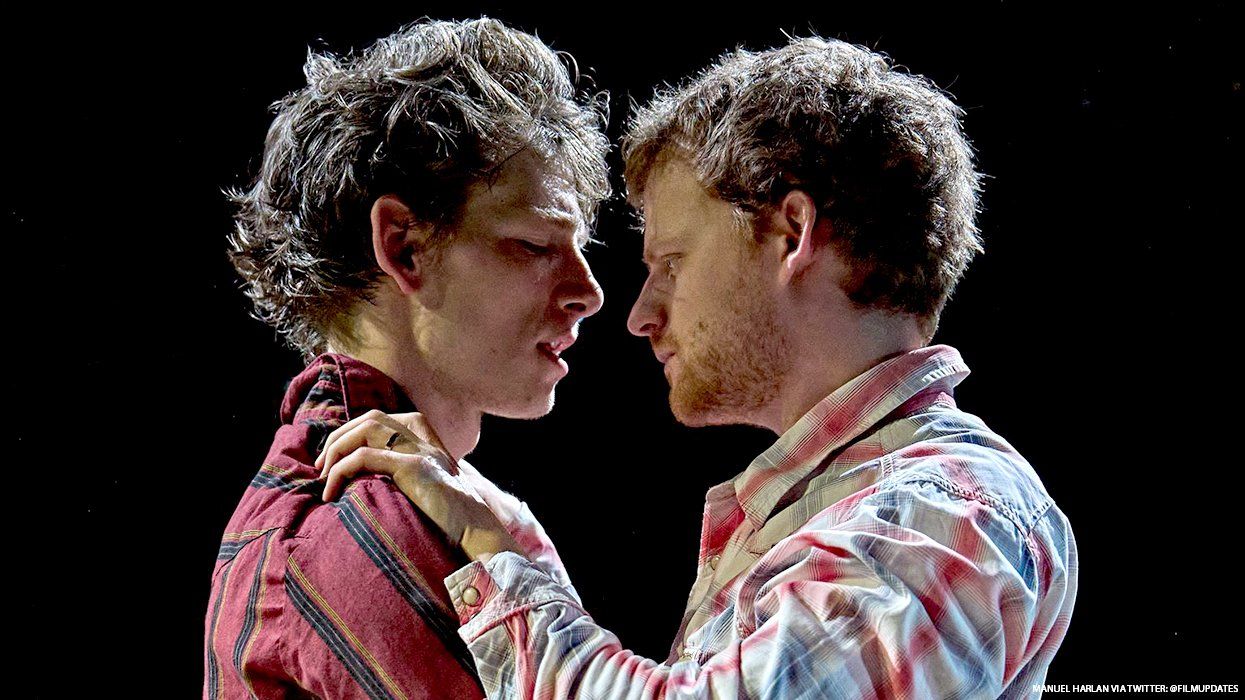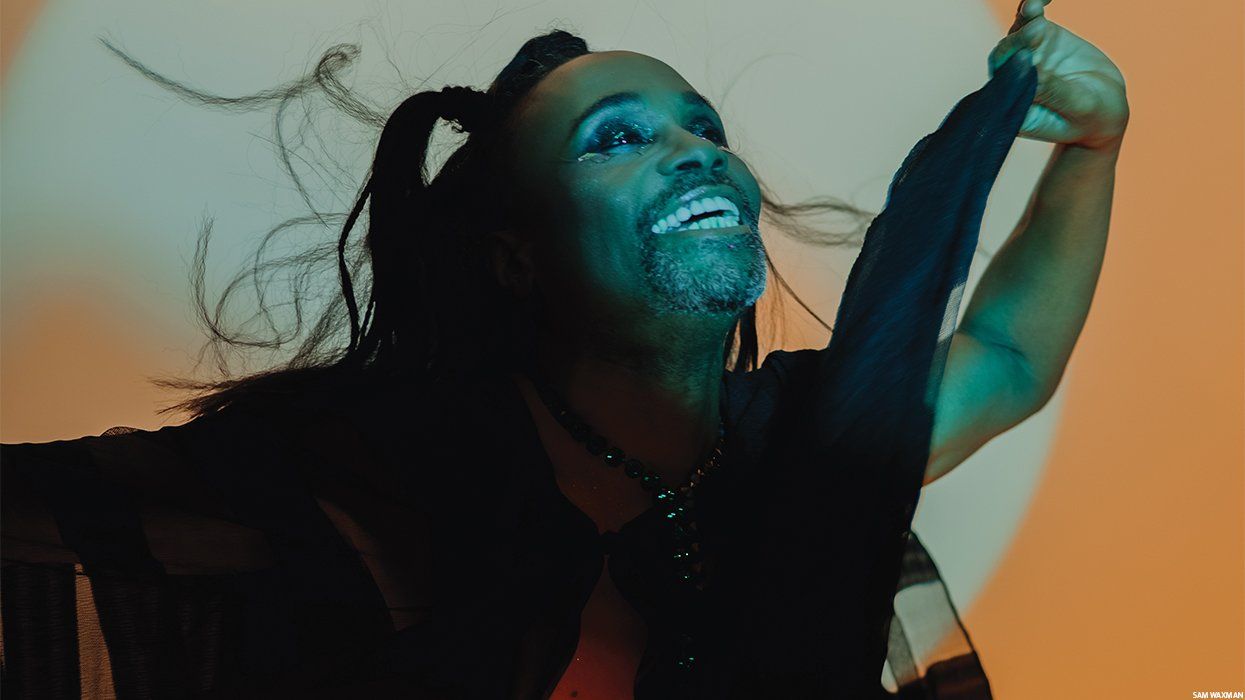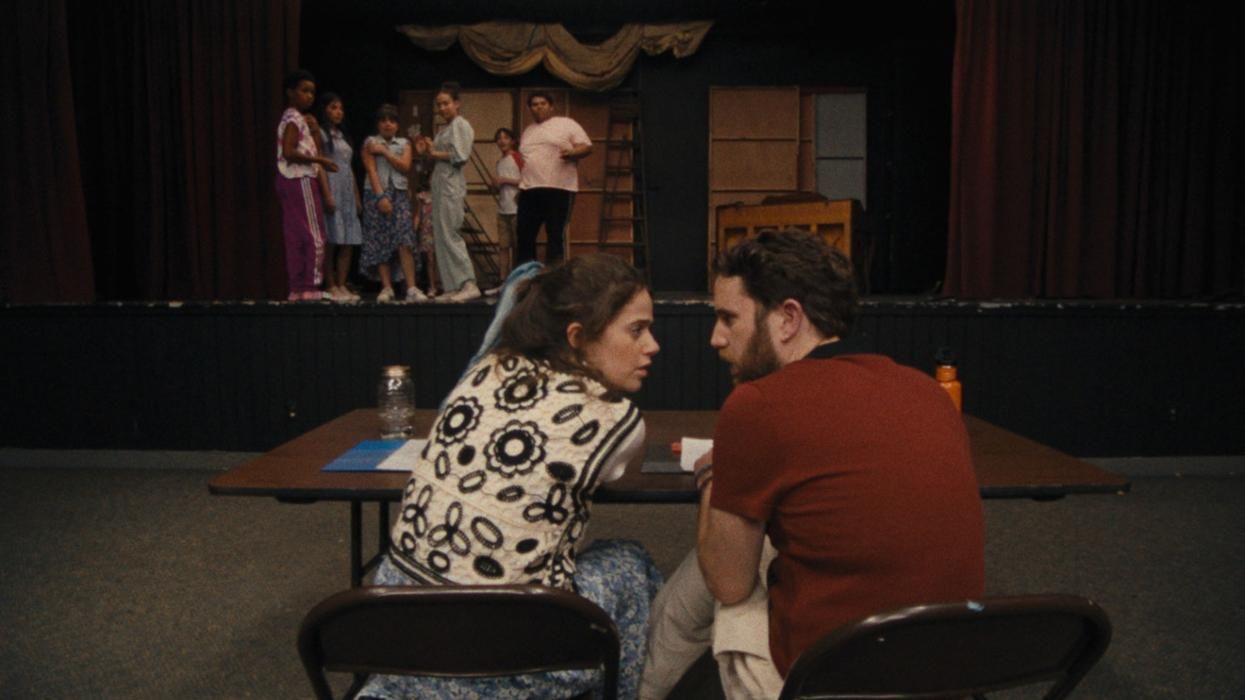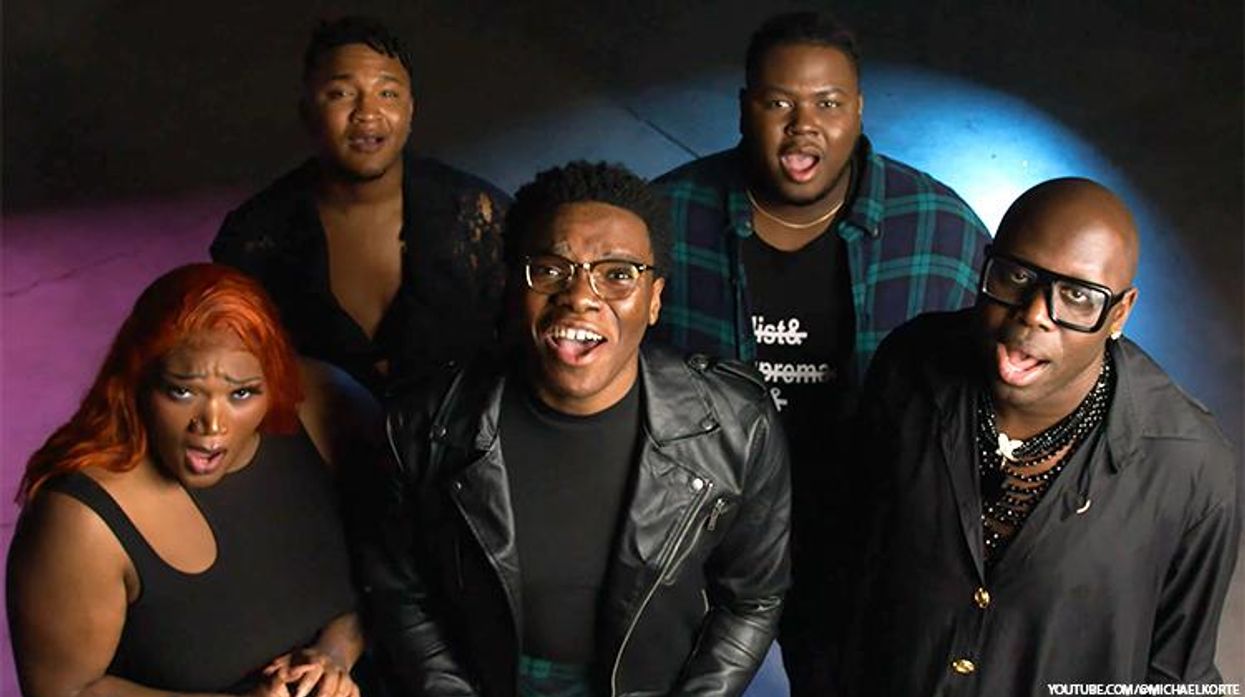Antoinette Thornes (center) with co-star Timothy John Smith in 'On a Stool at the End of a Bar' | Photo by Carol Rosegg
"I think for me personally, as a transgender woman, you can't have a proper relationship with anyone unless they know everything about you -- the full story -- all of the truth," actress Antoinette Thornes says. In the world-premiere production of the On a Stool at the End of a Bar, Thornes proves that point live on stage during each performance.
In the play, Thornes (who is also a member of the New York-based rock band Thornes) plays Chris, a transgender woman living with her boyfriend, Tony, and his children in 1980s New Jersey. Early on, the idyllic relationship and family dynamic Chris enjoys comes crashing down around her when her brother accidentally reveals to Tony that Chris was born biologically male. Tony has a difficult time processing the information, naturally, leaving the couple to discuss what it means for their future together.
Unlike Transparent, the new Amazon series starring Jeffrey Tambor as a trans woman, director Michael Parva decided to cast a real trans woman in the role of Chris. At the most basic level, Antoinette Thornes relates to Chris because of their shared identity as trans women. Everyone, however, can relate to Chris on some level, according to the actress.
"When you watch her, I believe that you can understand the choice that she makes," Thornes explains. "You may not agree with them, but you can still understand why she would choose to do it the way that she did." Regardless of sexual identity or orientation, many dream of the ideal nuclear family. Chris found that with Tony and his children, but "the longer it takes to tell somebody, the harder it becomes to tell somebody." She doesn't conceal her past for any malicious reasons, rather it's because she fears losing what she's gained.
For Thornes, she felt like this was a play she had to do. First, because plays like this are culturally important. "The more people hear about this, the more normative it becomes, and the less likely there is going to be violence," she explains. Even more important than that, she says the play serves as an invaluable educational tool from which audiences can all benefit. After all, "The more you know, the less you hate," Thornes says.
The play's message seems to be that dishonesty by omission has a price. Ultimately, "people fear what they don't understand. It's human nature," Thornes says. "First, you fear it, then you laugh at it, then you accept it. Drawing on timely parallels, she continues: "Think about this, the '60s. They were horrible for black people. It was just, 'We've got to kill it. We've got to kill them. We can't have them getting uppity and talking. We have to kill them.' Then there were the '70s and, all of a sudden, now we have more black people in the mainstream as long as we can keep them as a comic figure--that way we can laugh at them to make ourselves feel more comfortable. Then, we get to the acceptance."
Yet, when it comes to the topic of transitioning, Thornes takes it in stride. She doesn't downplay that it is and has been hard for her and others, but she isn't afraid to say that she feels that she has been lucky when it comes to her personal experiences with transitioning. "Friends come up to me and they say, 'God, I can't imagine the things that you've been through.' I'm like, 'Please, everyone has had their hard times.' There are young kids in West Africa dealing with Ebola. Our kids in Detroit right now are dealing with severe poverty. There are so many things out there right now that are worse than what I'm dealing with," she says. "The thing that makes me lucky is that I was able to transition more smoothly. My appearance is that, that when I walk down the street, people just think of me as a girl. They don't see that transgender, so they don't judge me."
However, hailing from a small town, she has faced her own difficult experiences too. "I remember people running me off the road, people throwing bricks in my window, getting beat up, and getting yanked out of my car and getting thrown on the street and beat up," she explains. "Once I fully transitioned, it was much harder for people to be able to tell. And I moved to a new town. Nobody knew who I was, and I was able to live as a woman without any reprisals."
Despite this, she has deep empathy for others who have it harder than her. "The girls that actually have to deal with that on a daily basis, that cannot get away with just being girls, when people see them on the street they go, 'That's a man!'--they're not men, they are women--but they still haven't got to that point yet where they are undetectable," she says. "Their lives are much more difficult. They are the ones that I would be doing this play for."
On a Stool at the End of a Bar continues its run at 59E59 Theaters, New York City, through Dec. 14.







